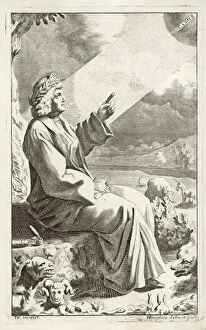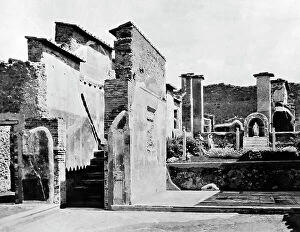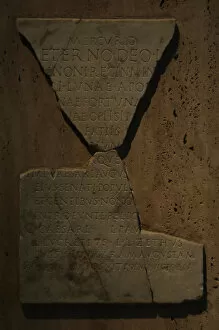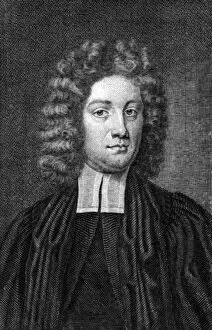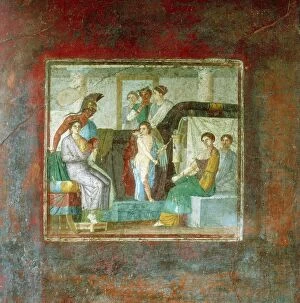Lucretius Collection
Lucretius, also known as Titus Lucretius Carus, was a Roman philosopher and poet who lived during the Victorian period
All Professionally Made to Order for Quick Shipping
Lucretius, also known as Titus Lucretius Carus, was a Roman philosopher and poet who lived during the Victorian period. He is famously associated with the House of Marcus Lucretius in Pompeii, Italy. This ancient house, located in Reg IX, Ins 3, 5, 24 of Pompeii, provides valuable insights into the life and times of Lucretius. The House of Marcus Lucretius stands as a testament to the rich history and cultural significance that surrounded this renowned philosopher. Its inner court showcases intricate details and architectural beauty that captivate visitors even today. One notable depiction can be found in an engraving from the Victorian era. This artwork portrays him pointing towards the sun, symbolizing his deep understanding of nature's workings and his unwavering pursuit for knowledge. A commemorative plaque dedicated to Lucretius serves as a reminder of his contributions to philosophy and literature. It honors his profound ideas on topics such as atomism and Epicureanism which continue to influence thinkers across generations. Thomas Creech played an instrumental role in bringing Lucretius' work to wider audiences through translations during the Victorian period. His efforts ensured that future generations could appreciate the brilliance embedded within De rerum natura (On The Nature Of Things), one of Lucretius' most significant works. Even popular culture has embraced aspects related to Lucretian philosophy. A greetings card featuring four bulldogs represents Empedocles' four elements - earth, air, fire, and water - which were central themes explored by both philosophers. Lastly but not leastly is Pompeii itself; where ruins still stand tall despite being buried under volcanic ash for centuries. Among these ruins lies what remains of the house once inhabited by none other than our beloved thinker himself – Lucertuis’ legacy lives on.

